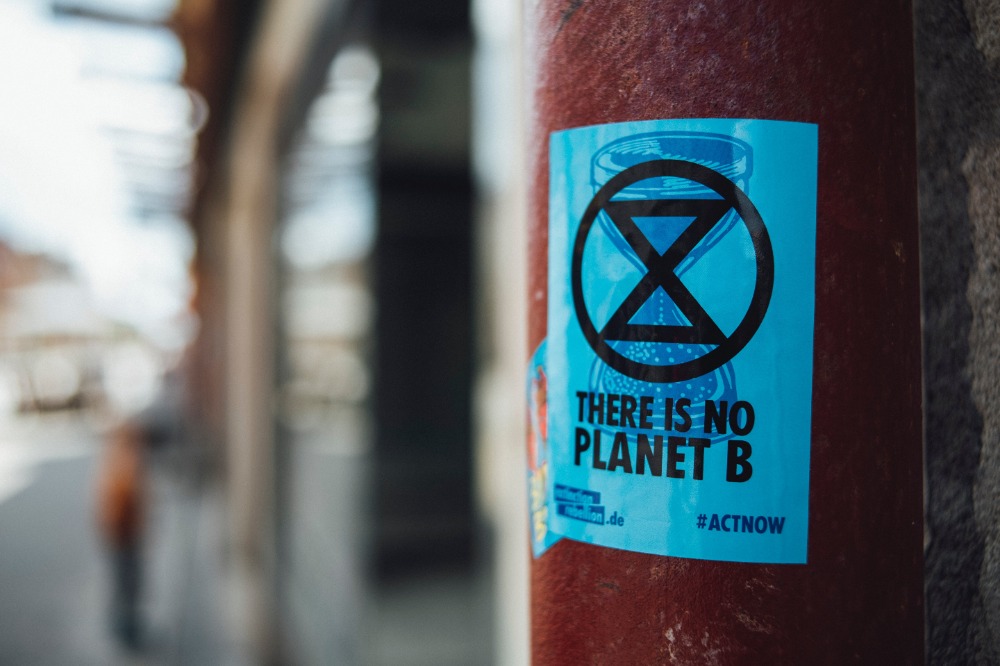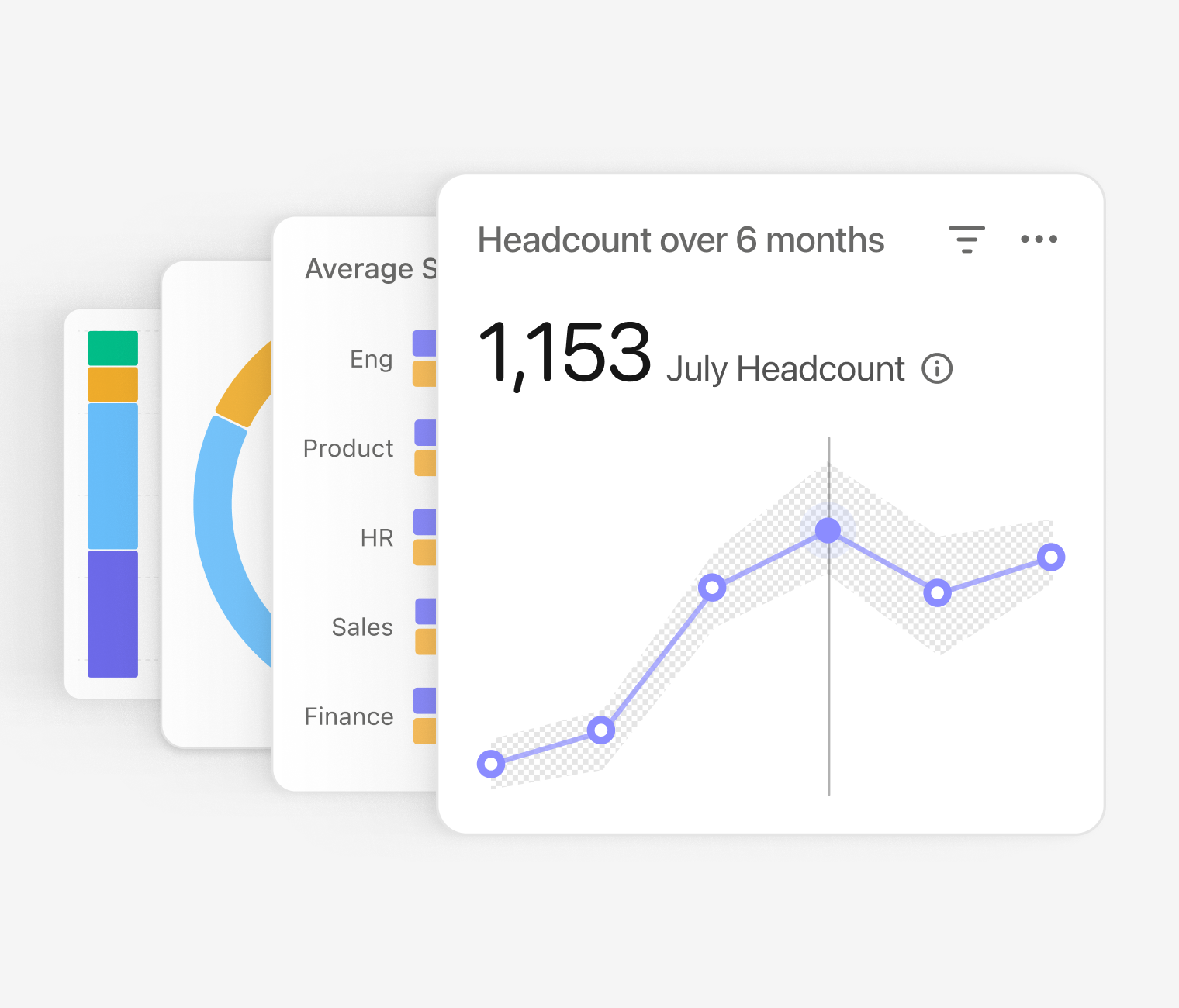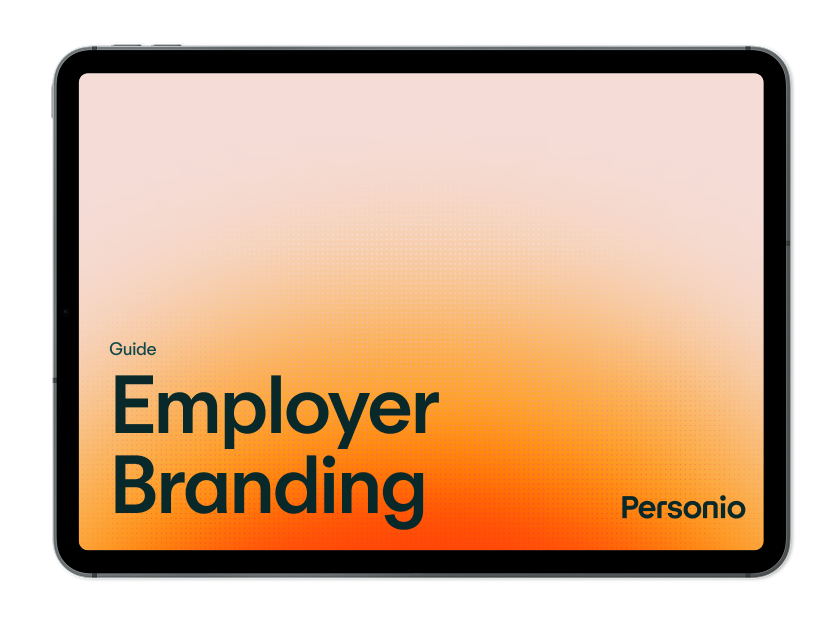31. July 2023
6 Achievable Sustainability Tips for Businesses (Including Where to Start)

In the past few years, robust Environmental, Social and Corporate Governance (or ESG for short) has evolved from a nice-to-have to a non-negotiable for businesses. And like a lot of important initiatives, it often falls on HR to manage.
As the Harvard Business Review recently shared, the top ESG priorities for employees can cover everything from providing a fair, living wage (21.2%), creating employment opportunities for the community (11.1%) to ensuring their leaders act ethically (7.6%).
Wondering where to start? Holly Smith, Personio’s Diversity, Equity & Inclusion Partner shares what your HR department can do to make a real difference, alongside insights from our sustainability partners, Plan A and Apiday.
1. Use UN Sustainability Goals as your North Star
The first step we took at Personio was to review the UN Sustainability Goals to help identify the actions we could take as an organisation. The team took time to map the effort and impact of each action and map it back to each of these goals, such as gender equality, affordable and clean energy, responsible consumption and production and climate action. The process was a relief to confirm we were on the right path, explains Holly: “We were pleasantly surprised at what behaviours we had organically adopted in the business, which gave us momentum to do more.”
Pro-tip: Don’t overcommit to your goals, be selective
Noemie Frohn, Apiday’s Head of Sustainability, says that while the UN goals are a key framework for companies, a lot of companies are declaring contributing to all goals: “There are 17 of them, which is far too many for one company! Companies are absolutely not expected to take action on every issue.”
She explains that refining your goals can actually be much more powerful: “That's why it's important to make a choice and to identify the top three to five that will make the most impact, depending on the company's activities.”
2. Reconsider your approach to business travel
As Personio has seven offices across Europe and employs many remote employees around the world, it’s important that when employees do need to travel, they do so in a sustainable way. To support that, Personio offers a subsidiary for anyone who uses public transport.
As a policy, Personio doesn’t allow ‘business class’ travel. Holly explains why this last change is important: “Passengers seated in business class are responsible for 2.6-4.3 times more emissions than if they fly in economy, based on floor space and weight taken up per passenger.”
This is something all businesses will need to think about, says Lubomila Jordanova, CEO of Plan A: “Climate change is one of the most pressing issues of our times and it requires immediate action on a global scale. Virtual communications and flexible work arrangements will become even more prevalent, reducing emissions related to commuting or business travel.”
Noemie agrees: “Formalising a green travel policy to limit in-person meetings might help achieve carbon emissions reduction, but it could also negatively impact employee engagement. In that example, measuring both carbon footprint and employee engagement is needed to avoid impact switchover.”
3. Keep track of your employee commuting data
It’s not just air travel that is important to monitor – all commuting data helps to paint a picture of your organisation’s carbon footprint. Holly explains: “It’s important to know how many people you have in each office, how often they come in and how they commute and an HR system like Personio enables you to do that.”
From here, it helps to track success and employee sentiment with surveys, says Holly: “Once you have these metrics, you can launch a survey to track your progress and measure how impactful employees feel your sustainability efforts are”. You can also use absence management to monitor volunteer day up-take if you do choose to implement them.
4. Provide ways for your business to give back
One of the best ways to get your employees committed to your ESG efforts is to enable them to experience them firsthand for a day, or two. For example, Personio offers employees two impact days per year to volunteer with a charitable organisation and raise money that helps to give back to the wider community.
This can be a great opportunity to get employees excited, says Noemie: “These kinds of initiatives make even more sense when they are employee-led. For example, you can pre-select a list of nonprofits to donate to, but leave the final choice to your employees via a vote.”
Alternatively, is there a commitment that you can make to donate your profits or expertise to a charitable organisation? Personio Foundation transfers 1% of our equity to a charitable foundation at the time of an IPO. It’s one of the ESG efforts Holly is most excited by: “To date, we’ve raised over $3 million in donations.”
5. Find partners who can give expert guidance
Ultimately, to really make an impact on your sustainability, sometimes bringing the right partner on board is key. For example, Personio has a B2B partnership with Plan A and Apiday in order to actively encourage our customers to also take positive climate action.
Plan A empowers businesses to measure, reduce and report on their carbon footprint and ESG performance. Its software helps businesses find the actions with the most significant carbon reduction potential, set science-based, net-zero targets and achieve them through industry-specific decarbonisation activities.
Meanwhile, Apiday is an innovative ESG data management and performance platform tailored for scale-ups, SMEs, and enterprises. Their software goes beyond the basics, offering carbon accounting, AI-led ESG data-gathering tools, and customised action lists for every business they collaborate with.
When it comes to sustainability, it pays to partner with the right experts. Make sure you choose who you partner with carefully, so they can offer the right guidance at the right time.
Enable Data-Led Decisions

Collect and organise important HR insights such as absences, attrition, and more. Generate detailed reports in seconds so you can strategise with confidence.
Unlock detailed HR analytics6. Don’t forget about affordable workplace changes
Sustainability may be about making big changes but it’s also about making small but effective changes too, starting in your workplace. As Lubomila explains: “A prevalent misconception is that sustainability is often considered to be complex and expensive, require tremendous resources and will negatively impact the bottom line.”
This is actually the opposite of reality: “The truth is that although some initial investments might be required, sustainable practices will ultimately lead to substantial cost savings in the long run through reduced resource consumption, improved efficiency and enhanced brand reputation.”
Noemie agrees: “We often forget that the first step of change is awareness. Educating your employees on sustainability issues doesn't necessarily require a lot of resources. There is a lot of free, high-quality content available online. For example, Apiday’s sustainability experts regularly post articles on the challenges of sustainability and how companies can get started.”
For the short-term, Holly gives a few examples of instant switches that just about every workplace could easily make, detailed below:
Switching to lights with sensors and timers to save on electricity
Implementing digital solutions as your baseline to enable your teams to connect online - only travel if you really feel it adds value
Moving to organic and locally produced snacks in your office, along with offering more vegan and vegetarian options (if you provide food)
What could the future sustainable workplace look like?
According to Lubomila, future workplaces will:
Have zero-waste policies
Have sustainable water management practices
Be designed to be energy-efficient and utilise renewable energy
Have green spaces to promote employee wellbeing and productivity
Meeting the sustainability needs of today’s workforce
According to data from Statista, 56% of employees care about whether their current or future employer acts in a sustainable way.
Sustainability for organisations is only becoming more important. To meet those needs, we have introduced Personio Green, offering our customers the opportunity to benefit from discounts and curated sustainability resources for both Plan A and Apiday
Lubomila says: “This presents a compelling approach for companies to kickstart their decarbonisation journey, build climate literacy within the workplace, and offers a unique chance to enhance employee satisfaction and engagement.” This is how our partnership with both organisations works:
Step 1: Together with our partners, your organisation calculates, monitors and reduces its emissions.
Step 2: After taking the steps in your decarbonisation journey, you receive a certificate or report from our partners and a ‘Green employer’ badge from Personio, which we furthermore highlight on your career page and on your login screen, so that employees understand that your company is contributing to a more sustainable future.
Step 3: We love to support organisations going through their transformational journey. As soon as you have received your certificate, we reward you with a 5% credit on your Personio package.
Want to help your business on their net-zero journey? Personio Green grants our annual plan customers discounts for both of our sustainability partners Plan A and Apiday.

Hannah Popham
Hannah is a Senior Content Marketing Manager at Personio. She loves writing about the ever-changing ways that we work and how they intersect with our lives outside work.

